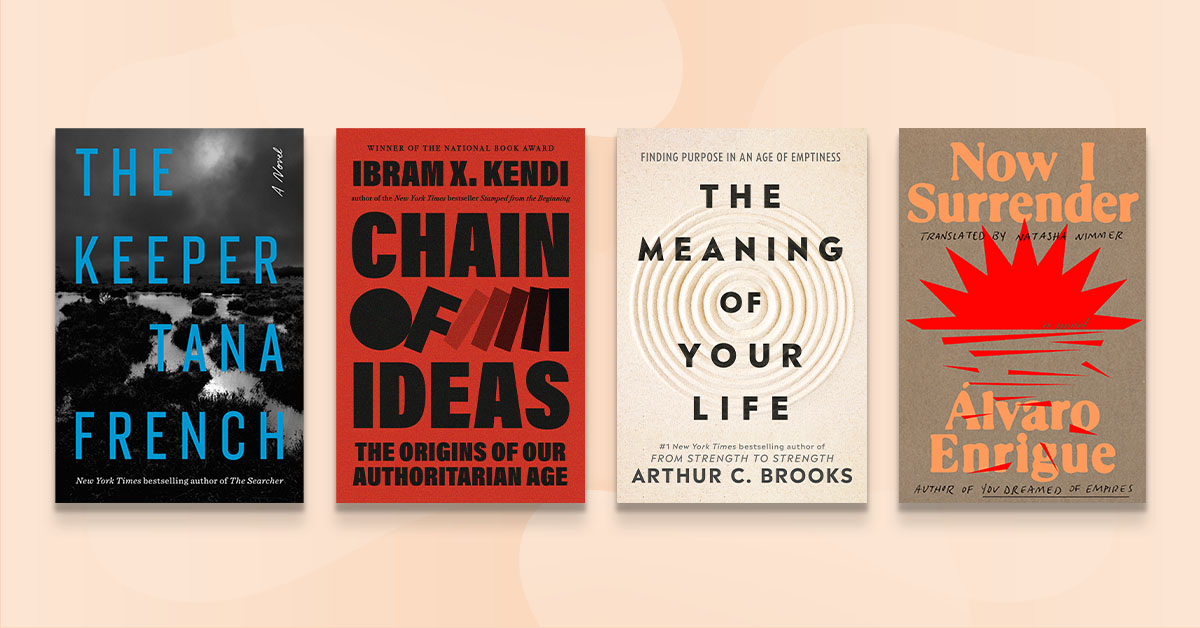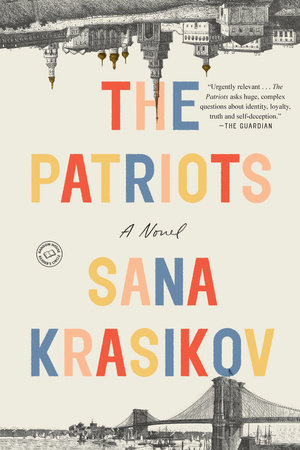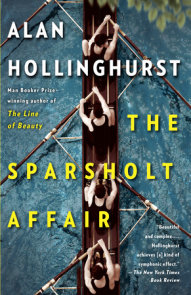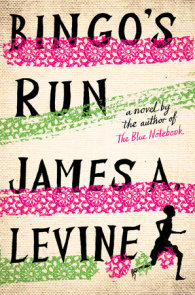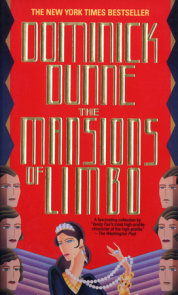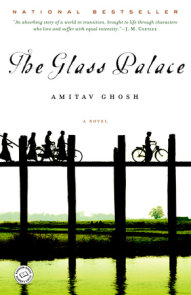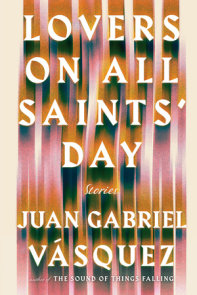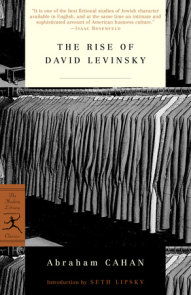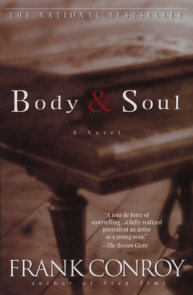READERS GUIDE
Introduction
THE PATRIOTSA HISTORICAL TIMELINE
1924 –
American Trading Corporation (Amtorg) opens in New York. Officially a semi-private joint stock company, Amtorg serves as buyer of equipment for the Bolshevik state and as the unofficial embassy prior to U.S. recognition.
1929 –
October, Black Tuesday. The U.S. stock market crashes, signaling the start of the Great Depression.
1930 –
Amtorg expands its role as commercial intermediary between American businesses and Soviet enterprises. Taking advantage of the desperate condition of the American economy, it negotiates contracts with firms such as Ford, GE, Arthur G. McKee, and DuPont de Nemours.
1931 –
Major banks collapse, and $200 million in deposits disappears, leaving customers with nothing.
1932 –
November, U.S. unemployment reaches 23 percent.
In the U.S. presidential election, Franklin D. Roosevelt defeats Herbert Hoover.
December, Soviet Union introduces internal passports.
1933 –
30–45 million Americans tune in to hear populist “radio priest” Charles Coughlin’s weekly broadcast on the radio.
November, FDR recognizes the Soviet Union, ending sixteen years of U.S. nonrecognition.
December, Prohibition ends.
1934 –
July, Soviet secret police OGPU is renamed NKVD. Genrikh Yagoda becomes head.
December, Sergey Kirov, popular head of the Leningrad Communist Party and potential rival to Stalin, is assassinated, triggering a series of purges.
1936 –
September, Nikolai Yezhov replaces Yagoda as head of secret police.
November, FDR is reelected.
Joseph Davies, a Washington lawyer whose wife, Marjorie Merriweather Post, is a major contributor to FDR’s reelection campaign, is appointed ambassador to the Soviet Union.
June, Abortion is outlawed in the Soviet Union.
August, First Moscow show trial, of Grigory Zinoviev, Lev Kamenev, and others.
December, New Soviet “Stalin” constitution is adopted.
1937 –
January, Second Moscow show trial, of Georgy Pyatakov, Karl Radek, and others. Reign of Terror begins.
June, Several Red Army generals are executed.
1938 –
March, Third Moscow show trial, of Nikolai Bukharin, Aleksey Rykov, Yagoda, and others.
November, Lavrenti Beria replaces Yezhov as head of secret police.
1939 –
August, Germany and U.S.S.R. sign a nonaggression agreement: the Molotov-Ribbentrop Pact.
September, Nazi Germany invades Poland on September 1, starting World War II. Soviet Union follows on September 17.
October, Soviet Union annexes western Ukraine.
November, Soviet Union annexes western Belorussia and invades Finland.
1940 –
February, Soviet-German Commercial Agreement.
1941 –
June, Nazi Germany invades Ukraine. Soviet Union enters World War II against Germany.
September, Kiev falls to Nazi Germany. German offensive approaches Moscow. Leningrad is encircled.
November, Lend-Lease to the Soviet Union begins.
December, U.S. enters World War II.
1942 –
Soviet government creates five anti-fascist committees to win support in the West.
1943 –
February, Germans fail to take Stalingrad. Soviet forces launch a general counteroffensive, which will culminate in the capture of Berlin in
1945 –
July–August, Soviets win the Battle of Kursk, a turning point in the war.
Solomon Mikhoels and Itzik Feffer of the Jewish Anti- Fascist Committee travel to the U.S., England, Mexico, and Canada to raise money from Western Jews for Russian war effort, bringing back millions of dollars.
1945 –
May, Nazi Germany surrenders to Allies.
1946–48 –
Stalin’s initial “battle against cosmopolitanism.” Soviet press accuses writers, musicians, critics, and others in the arts of “kneeling before the West.”
1948 –
January, Actor Solomon Mikhoels, head of the Jewish Anti-Fascist Committee, is murdered in Minsk.
May, State of Israel is established.
September, Golda Meyerson (later Meir) arrives in Moscow as Israel’s first ambassador to the U.S.S.R. Huge crowds welcome her, demonstrating to Stalin an impulse toward Zionism among Soviet Jews.
November, Stalin disbands the Jewish Anti-Fascist Committee.
1949 –
January, Soviet press begins an “anti-cosmopolitan” campaign specifically targeting Jews.
It crusades to expose literary pseudonyms, which were used by many Jews, by putting their real names in parenthesis. Arrests of Jewish intellectuals, aka “rootless cosmopolitans,” begin.
August, First Soviet nuclear test, using copied U.S. Fat Man design.
1950–53 –
Korean War. Relations between the Soviet Union and the West deteriorate.
MiG-15 jet fighters appear above North Korea, flown by Soviet pilots masquerading as Chinese and Koreans.
The U.S. Air Force dispatches high-tech F-86 Sabrejet interceptors, triggering a battle for air superiority.
1952 –
May, Kremlin begins trial of fifteen figures involved in Jewish Anti-Fascist Committee. There are no prosecutors or defense attorneys, only three military judges.
August, Thirteen of the defendants, including well-known Yiddish writers, actors, and poets, are secretly executed on August 12, which becomes known as the Night of the Murdered Poets. Their families are charged with “being relatives of traitors to the motherland” and are exiled in December.
1953 –
January, Kremlin announces that Soviet officials have uncovered a conspiracy among Jewish doctors to poison high- ranking Party members. Anti-Semitic press and mass arrests of doctors follow.
March, Stalin dies on March 5, nine days before Doctors’ Plot trial is to begin. The plot is subsequently discovered to be a fabrication and prelude to a mass pogrom.
July, Beria is arrested. He will be executed in December.
Armistice is signed in Korea.
September, Nikita Khrushchev is elected first secretary of the Communist Party of the Soviet Union.
1956 –
February, At the 20th Party Congress, Khrushchev delivers the “secret speech” on Stalin’s crimes.
1959 –
July, At Moscow’s Sokolniki Park, the American National Exhibition opens, prompting the “Kitchen Debate” between Khrushchev, now premier, and U.S. vice president Richard Nixon.
1979 –
An unprecedented 51,000 Soviet Jews are allowed to leave the Soviet Union, thanks in part to the legacy of the Jackson-Vanik amendment to the U.S. Trade Act of 1974.
Questions and Topics for Discussion
1. In the novel’s opening pages we find Florence Fein engaged in the act of breaking her father’s heart. She’s leaving her family—and America—and boarding a steamer ship to Russia. Why do you think Flor- ence chooses to uproot herself like this? How much of her decision is driven by politics, by opportunity, by love?
2. One of the book’s ironies is that Florence is seeking freedom when she leaves America: She “fled the Land of the Free to feel free.” What forms of liberation and, conversely, entrapment does she find in Russia? Does she eventually find freedom on her own terms?
3. All of the main characters of the novel have their loyalties tested. What types of allegiances are put to the test in the book? Do you believe that Florence remains a fierce defender of Russia till the novel’s end or does her experience with the pilot change her? How do you interpret the novel’s title? Who are the “patriots” in the novel?
4. When we meet Lenny, he’s going through a crisis. After several years in Moscow, he finds that his skills are no longer unique, and he’s reckoning with why he’s really come to Russia and why he remains. Do you think making money is the only reason he stays in Moscow? What else is keeping him there? Do you agree with Julian that, just like Florence, Lenny doesn’t want to return home “a failure”?
5. Deception, of others and of oneself, is a motif in the book. Do you think self-deception can be a key to survival? What role does self-deception play in the lives of the Brinks? Julian says that there is “a certain shrewd- ness” to Florence’s ability to use her interrogators’ methods against them. Do you agree with his assessment? Does her adaptiveness make you see her as self-serving or heroic?
6. To what degree do you see this as a novel about immigrants ver- sus a novel about Americans abroad? Was it surprising to learn that many Americans, especially Jews, left the United States during periods of eco- nomic and political hardship?
7. Before the war, it’s Leon who wants to stay in the U.S.S.R. and Florence who wants to leave. What precipitates the reversal in their views?
8. Why do you think Florence is unable to say the word “America” when her son, Julian, urges her to immigrate with the rest of the family? Do you agree with Julian’s assessment that his mother is “a grade-A delu- sional narcissist”?
9. During Feffer and Mikhoels’s trip to America, Feffer thinks: “The faces of the American Jews were hardly distinguishable from those of Rus- sian ones. Only their eyes were different. The absence of fear in them alarmed him.” Why do you think Feffer is disturbed by the enthusiastic goodwill of the American Jews? Describe Florence’s feelings about being a Jew in Russia. Do you think her feelings change in Siberia? If so, how?
10. Julian is the Russian-born child of two American Jews. In your opinion, is Julian more of a Soviet Jew or an American one? How does his awareness of his parents’ lives complicate his identity?
11. How does The Patriots affect the way you look at the America- Russia relationship over the course of the twentieth century, and today? How has the rivalry between the two countries been mutually beneficial?
About this Author
A CONVERSATION WITH SANA KRASIKOVTHE FOLLOWING IS AN EDITED AND REVISED VERSION OF AN EXCHANGE
between Sana Krasikov and her editor, Cindy Spiegel. The two discuss Krasikov’s inspirations for the novel and the key themes explored in The Patriots. The last question and answer are from an interview between Krasikov and Dalia Wolfson of the Jewish Book Council’s ProsenPeople blog, which took place in April 2017, reprinted with permission.
Cindy Spiegel: How did you get the idea for this book?
Sana Krasikov: The idea for the novel came one summer evening on Cape Cod while I was listening to a family friend, Timothy, tell the story of trying to convince his mother to immigrate with him to the United States. The part I didn’t know was that his mother was an American, born and raised in Brooklyn. She’d traveled to the Soviet Union in the 1930s and for a while lived an exciting expatriate life. When she tried to leave a few years later, it was too late; she was trapped. Tim had told us many fascinating stories about being born in Russia to two American parents, growing up having to keep his American origins secret while his mother was serving time in the Gulag and he was shuttled between state orphanages. But this evening, in the fading summer light on Cape Cod, he told us a detail I hadn’t heard before: how, as an adult in the 1970s, when he was navigating the family’s return to America, his mother at first refused to immigrate with them. She wouldn’t even say the word “America.”
“Are you still planning to go to . . . that place?” she’d say. Tim ascribed her refusal to stubborn idealism—a foolish commitment to the cause. I
thought I heard something else: fear. Not the usual immigrant fear of navigating a new country or mastering a new language. She was afraid to come home.
Maybe this detail struck me because it suggested a life’s journey so different from—almost the inverse of—my own. My family and I immigrated to America in 1987. We embraced the American Dream. When I came to America, I immediately felt the desire to make this adopted home feel permanent.
What, then, would it have been like to leave America as a young woman, only to return in old age? What would it be like to be an American living through the most murderous periods of the Soviet Union? Would it change your loyalties as a citizen? A wife? A mother?
CS: Florence is not only American—she’s Jewish. She’s a double out- sider in the Soviet Union. What did you want to say about growing up Jewish in Russia?
SK: A lot has already been written about anti-Semitism in Russia. That’s why I was so interested to learn that for a brief period during World War II, Jewish identity was actively encouraged—even heralded—by So- viet authorities. The reason? The miracle of Jewish fund-raising.
Our friend Timothy’s father had worked as a translator during the war for the Jewish Anti-Fascist Committee. This was a propaganda organ dedicated to raising money for the Red Army from Jews abroad. The committee included more than a dozen famous writers, actors, directors, poets, journalists, and scientists—Jews with international reputations—to produce material for the “bourgeois imperialist” press: The New York Times, the Chicago Tribune, The Boston Globe, et cetera. And all this prose had to be translated into perfect, evocative English, or else it would be tossed into the trash by American editors. That’s what Tim’s parents were doing during the war—translating these articles and essays for American Jewish readers.
These essays and reportage about Nazi atrocities and accounts of Russian Jewish heroism with profiles of Jewish soldiers were intended to stoke Jewish fellow-feeling and open Jewish wallets.
And it worked. Boy, did it work. It was the greatest Jewish fund-raising campaign that no one ever heard of. The director Solomon Mikhoels (who was known as the Yiddish King Lear) and poet Itzik Feffer went on a tour of North America, meeting Albert Einstein, Charlie Chaplin, Mayor LaGuardia. There were rallies and dinners for them, and everywhere they went, Jews gave money. At one rally, so many people swarmed the stage to fill the collection boxes that the stage collapsed and Mikhoels broke his leg. He had to finish the tour on crutches. The committee raised many millions of dollars for the Red Army in this way.
It also awakened Jewish identity back in the Soviet Union, Tim’s parents included. When Golda Meir visited Moscow in 1948, thousands of Jews swarmed to see her. In Moscow you had famous writers like Ilya Ehrenburg saying things like “I grew up in a Russian city. My mother tongue is Russian. I am a Russian writer. Like all Russians, I am now de- fending my homeland. But the Nazis have reminded me of something else: My mother’s name was Hannah. I am a Jew. I say this proudly. Hitler hates us more than anything, and this makes us proud.” You had writers like Dovid Bergelson—who was second in reputation only to Isaac Babel— writing about the Jewish experience. To speak such remarks in the open, let alone at rallies for thousands of people, was unheard of before the war. It went against two decades of Soviet censorship, which prohibited any talk of Jewish unity or Jewish suffering.
But after the war was won, how do you think Stalin thanked all these Jewish poets and writers for their patriotism?
Of course, he killed them. That purge—which was known as the Night of the Murdered Poets—was a dress rehearsal for the Doctors’ Plot.
But why did he kill them? The awakening of Jewish identity had outgrown its usefulness. Jewish nationalism now felt dangerous.
CS: Your novel, The Patriots, spans more than fifty years but is largely set in two periods—the 1930s and the late 2000s. Why those two time periods? Is there a connection between the 1930s and today?
SK: I began to collect material for this book in 2008, the same year that the United States, and the world, plunged into an economic crisis.
Going back and forth between New York and Moscow, I felt that my own insecurities and those of my friends echoed those of my character Florence, graduating into the teeth of the Great Depression. These insecurities are more than financial. So many of the social trends that we’re seeing today are enflamed by economic uncertainty and market contraction— class tension, racial aggrievement, nativist rhetoric, political polarization. All of that was flourishing through the thirties.
Also in the 1930s, as today, there was a widely felt sense that America had lost its greatness and was suffering a kind of humiliation or “under- performance.” Before it was called “the Great Depression,” it was called “the crisis of capitalism.” Folks were losing their faith in the capitalist sys- tem itself, in the paradigm of the liberal free market. There was an end-of- days feeling, which for some was also a kind of glee, that Marx’s predictions were finally coming true.
I was immersing myself in the politics, thought, and culture of the 1930s. And the more I read, the more I realized what a seminal decade that was in the twentieth century—how much of what’s familiar to us now came out of it. I understood that the Depression wasn’t just going to be a backdrop or set piece for my book. It had altered the psyches and personalities of an entire generation, but in surprising ways that I was only beginning to fully appreciate because my friends and I were suddenly living through a very similar period.
For example, I was recently reading a newspaper article that asked readers to identify a set of long quotes as either Donald Trump’s or Bernie Sanders’s. They were neither’s: The man quoted was Senator Huey Long, a populist orator whose fulminations make my character Florence’s skin crawl. In the book, she complains to her Russian lover about Huey Long and Father Coughlin, the famous “radio priest,” whose charismatic harangues against Bolsheviks and Jews and Wall Street “banksters” she has to endure from her landlord’s loud radio. Like Donald Trump, these men had mastered a blend of hyperbole, humor, and vitriol that made tens of millions of Americans tune in and attend their rallies. Just as today, the educated classes and the press attempted to dismiss Coughlin as a back- water demagogue, while great swaths of America—and not just poor America, but large segments of the middle class—supported these men’s ideas, which flirted with fascism and even socialism. Like social media today, the new mass medium of radio was suddenly enabling a distinctive form of populism and demagoguery.
CS: While Julian is an immigrant, both Florence and Lenny are expatriates. How did your experiences as both an immigrant and an expat in- form your writing of this novel?
SK: Being an expatriate was actually a more complicated experience for me than being an immigrant. The task of immigration is concrete: You are adopting a new home. As an expat, you’re more displaced, between worlds. You are in a place, but not of that place. Sometimes you’re living in a fantasy of the country rather than the country itself. Florence, in her first years as an expatriate in Moscow, lives in that expat bubble. She enjoys her swinging life with her foreigner friends and her foreigner privileges. Until, through bureaucratic sleight of hand, her American passport is taken and that bubble is broken. Then she understands what world she’s living in.
CS: You said you thought of your book as an American novel that hap- pens to be set in Moscow. What does that mean to you?
SK: There is a great tradition of writing about America and the American consciousness from abroad. From Mark Twain to Henry James and Graham Greene to contemporary writers like Mischa Berlinski, the question of who we are abroad is paramount.
CS: What do you see as some of the similarities between Russia/the Soviet Union and America then and now?
SK: I was interested how these two public enemies—the Soviet Union and America—were also colluding with each other in financial markets. There is some evidence now that FDR privately admired Joseph Stalin. Their subtle partnership has tragic consequences for Florence and her family, and reveals a gulf between how America sees itself and how it actually operates in the world.
America and Russia are much more similar to each other than either admits—even on the level of language. In Moscow, Florence adopts a new vernacular, reconfiguring her mind along whole new lines of political correctness, an eager student of “acceptable” viewpoints and what is permissible and impermissible speech.
Even as I was writing those sections, a kind of climate of orthodoxy seemed to be settling over us, where an insensitive comment or question was labeled a “microaggression.” Equating speech with violence, as that word does, is precisely what Bolshevik censors did in the thirties. It was and is an excellent way to stifle discourse. Lobbing labels like “free speech purist” at people who disagree with your views wasn’t so different from all the labels the Bolsheviks liked to use: “reactionary formalist,” “enemy of the people,” “lacking true class consciousness.” You don’t have to engage in debate when you denounce somebody with a label or say, as college students do in open letters, “your opinion invalidates my experience, and therefore oppresses me.” How can one position possibly invalidate an- other? It’s one of the reasons that today there is a level of self-censorship that I could never have imagined possible when my family came to the United States.
Dalia Wolfson: Throughout the novel, we see a variety of coping/survival strategies in the logic-free zone: utopian beliefs, deep-seated cynicism, self-censorship, et cetera. Are these mentalities that you recognize from your own upbringing, and what would you like readers to learn from them?
SK: Oh, yeah, those are frames you carry around in yourself as a product of people who are products of the Soviet Union. Ways of thinking that seem wildly inconsistent to my American peers feel perfectly natural to me, and vice versa. You know, I hear the word “resistance” being thrown around a lot these days, and the American image of resistance always makes me think of Martin Luther nailing that list of grievances to the church door. That image of jump-starting a reformation, of standing up and being counted—that’s the subconscious image of heroism here. But what if you live under a system where that’s not an option? It won’t lead to any reform, and you’ll only bring punishment on yourself. Well, then, getting by often involves adopting the mechanisms of the same system that’s oppressing you and manipulating it to make life more livable—but also attempting to do it in a way that won’t deform you morally and psychologically. I’m not interested in writing “about Russia,” I’m interested in writing about people. What does “courage” or “dignity” even mean under circumstances so different from our own? Those are some questions I hope a reader might be asking.


